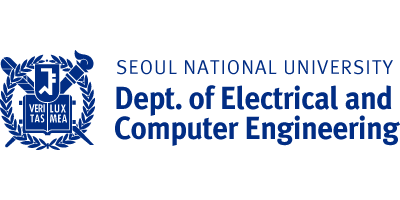Professor Yong-Taek Hong elected as a regular member of the Korea Academy of the Science and Technology (KAST) along with 27 others, including Professor So-Yeong Kim, Ji-Hun Ahn, and Jae-Kuk Kim. (Donga Science, 2022.11.20.)

From left, first row: Professor So-Yeong Kim (KAIST), Professor Myeong-Ju Kang (SNU), Professor Chang-Yeong Kim (SNU), Professor Jung-Yeong Park (KAIST), Professor Choong-Mo Park (SNU), Professor Hong-Kyu Park (KU), Professor Ji-Hun Ahn (KU).
From left, second row: Professor Kyu-Cheol Lee (SNU), Professor Sung-Keun Lee (SNU), Professor Won-Sik Choi (KU), Professor Seung-Hwan Ko (SNU), Professor Il-Han Kwon (HYU), Professor Kwang-Ho Kim (PNU), Professor Jae-Kuk Kim (CNU).
From left, third row: Professor Jae-Hyung Park (SKKU), Professor Sung-Hoon Ahn (SNU), Professor Hyung-Jun Cha (POSTECH), Professor Heung-Nam Han (SNU), Professor Yong-Taek Hong (SNU), Ki-Hun Park (GNU), Professor Cheol-Hee Yoon (SNU),
From left, fourth row: Professor Woo-Koon Lee (KU), Professor Hyun-Kyu Lee (HYU), Professor Won-Kyo Jung (PKNU), Professor Sung-Kyu Ko (KHU), Professor Hyun Kook (CNU), Professor Jung-Joon Min (CNU), Professor Dong-Gyu Jo (SKKU). Provided by KAST.
The first Korean science policies researcher to publish a paper in the Nature journal, Professor So-Yeong Kim (KAIST), the first researcher to reveal the mechanism behind plants’ flowering period control, Professor Ji-Hun Ahn (KU), a global researcher in the field of rechargeable batteries, Professor Jae-Kuk Kim (CNU), the pioneer of the field of immunology of animals, Profesor Cheol-Hee Yoon (SNU), were among the 28 that were newly elected as regular members of KAST, a scholarly association operating in Korea.
KAST announced on the 20th that during the “2022 2nd periodic general assembly” that was held on the 17th, 28 members were elected as new regular members of KAST for the year 2023.
Among the newly elected members, 1 was from the field of policy studies, 9 were from the field of natural sciences, 9 were from the field of engineering, 5 were from the field of agriculture and fisheries, and 4 were from the field of medicine and pharmaceuticals. The average age of the 28 new members is 54.3 and the youngest member is Professor Hong-Kyu Park from Korea University, aged 46. A female scientist was also among the newly elected members.
The member that was elected from the field of policy sciences was Professor So-Yeong from KAIST, who was the first Korean researcher in the field of science policymaking to publish a paper in the Nature journal related to natural studies research in Korea.
In the field of natural sciences, Professor Myeong-Ju Kang, SNU, a mathematician in the field of applied mathematics and computational fluid engineering, Professor Chan-Yeong Kim, SNU, an expert in the field of correlated electron systems, Professor Jung-Yeong Park, KAIST, an expert in the field of surface chemistry and nano-catalyst, Professor Choong-Mo Park, SNU, a pioneer in the field of plant sciences, Hong-Kyu Park, KU, an expert in the field of nanophononics, Professor Ji-Hun Ahn, KU, a scholar in the field of life sciences, Kyu-Cheol Lee, SNU, a pioneer in the field of semiconductor nanomaterials and devices, Sung-Keun Lee, SNU, a representative in the field of Earth system evolution research, and Professor Won-Sik Choi, KU, a researcher in the field of scientific image processing were elected.
In the field of engineering, Professor Seung-Hwan Ko, SNU, a scholar in the field of machine intelligence applications on nanostructures, Professor Il-Hwan Kwon, HYU, a global researcher in the field of waste disposal, Professir Kwang-Ho Kim, PNU, a researcher in the field of hybrid materials, Jae-Kuk Kim, CNU, a global researcher in the field of rechargearble batteries, Jae-Hyung Park, SKKU, an expert in the field of macromolecules for biological and medical applications, Sung-Hoon Ahn, SNU, a pioneer in the field of materials·design·manufacture, Hyung-Joon Park, KAIST, a researcher in the field of biomaterials and molecular biological engineering, Heung-Nam Han, SNU, a researcher in the field of metallic materials for structure use, and Professor Yong-Taek Han, SNU, a researcher in the field of novel display semiconductor device and semiconductor manufacture and materials, were elected.
In the field of agriculture and fisheries, Professor Ki-Hun Park, GNU, a researcher in the field of agricultural chemistry, Professor Cheol-Hee Yoon, SNU, a pioneer in the field of animal immunology, Professor Woo-Koon Lee, KU, an expert in the field of environmental sciences and ecology, Professor Hyun-Kyu Lee, HYU, an expert in the field of the processing of plants and applications, and Professor Won-Kyo Jung, PKNU, a researcher in the field of biomaterials and natural oceanic chemicals were elected.
In the field of medicine and pharmaceuticals, Professor Hyun Kuk, CNU, a representative researcher in the field of cardiovascular studies, Jung-Joon Min, SNU, a researcher in the field of nuclear medicine, Dong-Kyu Jo, SKKU, a representative researcher in the field of degenerative brain disease, and Professor Sung-Kyu Ko, KHU, an expert in the field of Korean Medicine, were elected.
Researchers who were active in their respective fields for at least 20 years, made significant research results, and contributed much to their fields are chosen as candidates, and among these candidates, after a 3-stage strict judgment process, regular members of KAST are elected. Among the judgment process, the evaluation of the candidate’s 10 most significant papers where the candidate is written as the lead author is of importance. In this evaluation, the paper’s excellence, originality, and academic influence are the main criteria.
KAST plans to introduce the research of the newly elected regular members during the “2023 new regular members induction ceremony”, which will be held on the 13th of January, both online and offline in the KAST auditorium. Wook-Jun Yoon, the director of KAST, said, “Regular members are elected based on strict evaluation of the researcher’s contribution to the academia and the industry, contributions to talent development, and other criteria. The evaluations take into account the different properties of different scientific fields.” He added, “As much as we have elected many great experts in various fields, based on the member’s enthusiastic participation, we will strive for the expansion of KAST’s influence on Korean scientific development and social contributions.
Source: https://ee.snu.ac.kr/community/news?bm=v&bbsidx=53014
Translated by: Do-Hyung Kim, English Editor of the Department of Electrical and Computer Engineering, kimdohyung@snu.ac.kr


